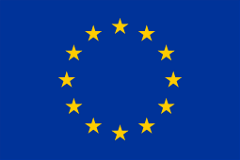Two research activities of the Pilot Project on defence research, SPIDER and EuroSWARM, financed by EU budget, were brought to a successful closure at their respective final meetings on the 20 and 21 February 2018. The last activity, TRAWA, is due to be completed by May 2018.
The Pilot Project aims at exploring how the European Union can support building defence capabilities relevant for the Common Security and Defence Policy and Member States. It was proposed by the European Parliament and launched by the European Commission in response to multiple political calls from EU institutions, Member States and NATO to improve Europe's defence capabilities. This objective is also enshrined in article 42 (3) of the Treaty on the European Union.
 The Pilot Project had been entrusted to the European Defence Agency (EDA) by the European Commission through a Delegation Agreement, which was signed on 16 November 2015. The EDA proposed to the European Commission a list of topics, for the preparation of the work plan of the Pilot Project. The call for proposals, the submission of proposals, the evaluation and the awarding of the grant agreement were organised and coordinated by EDA. After the signature of the grant agreements, three research activities were launched, executed by the awarded consortia and monitored by EDA.
The Pilot Project had been entrusted to the European Defence Agency (EDA) by the European Commission through a Delegation Agreement, which was signed on 16 November 2015. The EDA proposed to the European Commission a list of topics, for the preparation of the work plan of the Pilot Project. The call for proposals, the submission of proposals, the evaluation and the awarding of the grant agreement were organised and coordinated by EDA. After the signature of the grant agreements, three research activities were launched, executed by the awarded consortia and monitored by EDA.
With a budget of 1.4 million euros from the European Union, the three research activities received a grant in the order of € 430.000 each. All projects were launched in November 2016, namely: EuroSWARM, SPIDER and TRAWA.
The successful outcome of the Pilot Project, as a predecessor to the Preparatory Action for Defence Research, is to be seen in proving the feasibility of defence research funding through the EU budget. The initial rationale and objectives of the Pilot Project, which along with the on-going Preparatory Action on Defence Research was set-up to pave the way for a fully-fledged European Defence Research Programme (EDRP) in the next Multi-Annual Financial Framework after 2020, have already been met. It has supported the demonstration that EU funding can effectively support EU defence research needs, based on a structured cooperation and joint work between the European Commission and the EDA. The successful handling of the Pilot Project by the European Commission and the EDA has been an excellent preparation for the Preparatory Action on Defence Research and a future EDRP.
Unmanned Heterogeneous Swarm of Sensor Platforms (EuroSWARM)
EuroSWARM aimed to test and demonstrate that efficient and effective operation of unmanned swarm systems can bring a profound impact to the military arena. The key focus was the minimisation of uncertainties in situational awareness information for surveillance operations through a swarm system of systems composed by static and mobile heterogeneous sensors.
The main objectives of the activity were to:
- develop key techniques for adaptive, informative and reconfigurable operations of unmanned heterogeneous swarm systems, namely: optimal task allocation and resource management, sensor fusion, cooperative guidance, robust sensor network;
- integrate the developed enabling techniques;
- validate the developed enabling techniques based on empirical simulation studies;
- demonstrate the proposed solutions based on a small scale of experiments.
EuroSWARM was carried out by a consortium led by the University of Cranfield (UK) which also included the French aerospace research agency ONERA (Office National d'Etudes et de Recherches Aérospatiales), the Swedish Defence Research Agency FOI and the University of Patras (Greece).
Inside Building Awareness and Navigation for Urban Warfare (SPIDER)
SPIDER aimed to develop an innovative system to support Urban-Warfare operations by providing improved situational awareness to operational forces entering an unfriendly building. It focused on the use of radiofrequency (RF) stationary sensors and mobile ground robots.
The main objectives of the activity were to:
- develop and analyse a framework comprising the use of multiple sensors to perform indoor mapping and human detection in an Urban Warfare context;
- consider the choice of a data fusion strategy to process and combine sensor data;
- explore the advantages and constraints of using each solution as well as solutions encompassing autonomous robots combined with static RF sensor networks.
SPIDER was carried out by a consortium led by TEKEVER, a Portuguese technology company, and composed of IT Aveiro - Instituto de Telecomunicações (Portugal), Aralia (UK) and the Bulgarian Defence Institute (BDI).
Standardisation of Remotely Piloted Aircraft System (RPAS) Detect and Avoid (TRAWA)
The TRAWA activity, which is still ongoing, aims to contribute to the development of standards for a performant and affordable detect and avoid (DAA) system usable on-board Remotely Piloted Aircraft Systems (RPAS). It is focused on the Remain Well Clear (RWC) function and contributes to the standardisation activities in cooperation with other international efforts in full alignment with EUROCAE WG 105 Terms of Reference.
The main objectives of the activity are to:
- specify Remain Well Clear in quantitative terms and obtain validation via simulations;
- specify sensor types, detection ranges and position estimation accuracy;
- develop requirements for remote pilot HMI (Human Machin Interface) characteristics.
TRAWA is carried out by a consortium led by the Netherlands Aerospace Center (NLR) with the following partners: the German Aerospace Center (Deutsches Zentrum für Luft- und Raumfahrt, DLR), Deep Blue (Italy), Tony Henley Consulting (UK) and EuroUSC (Italy).
More information